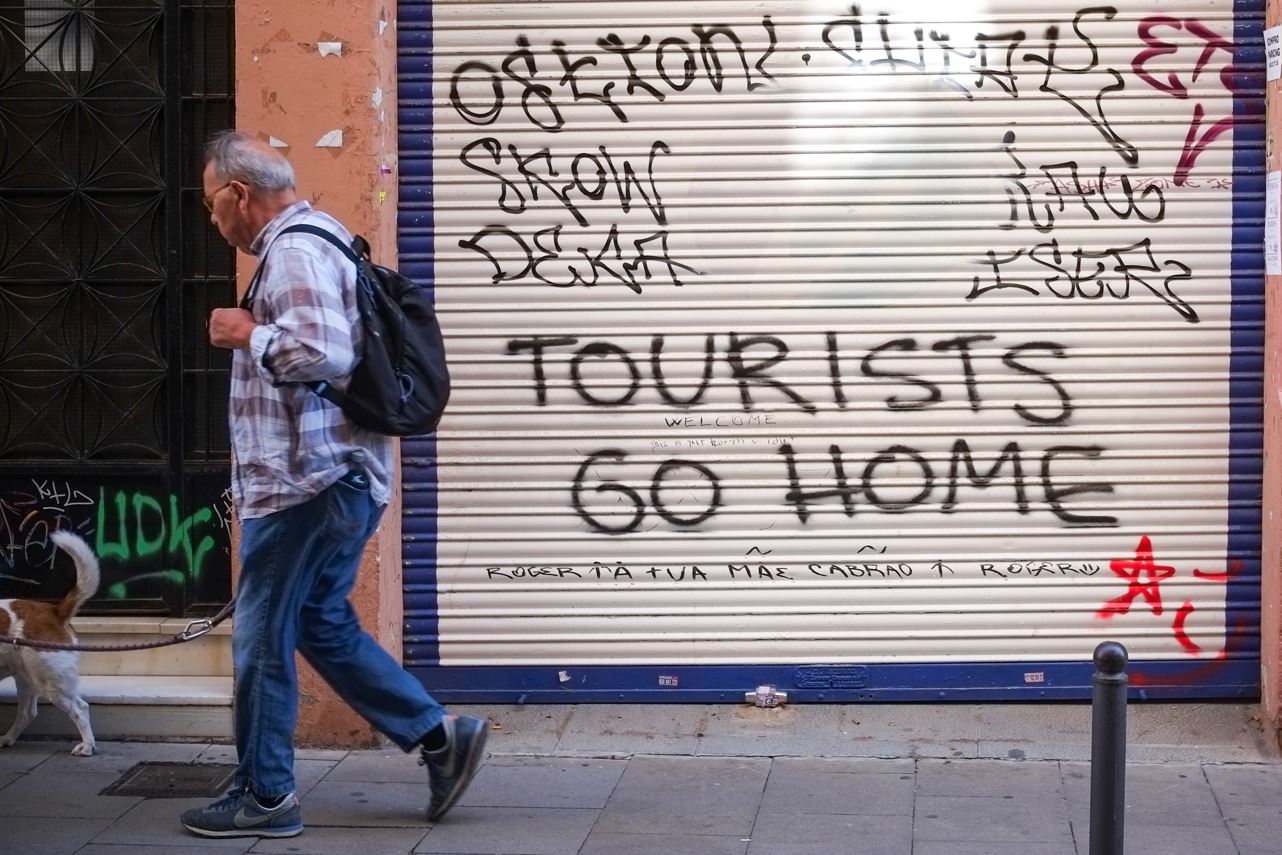Once again, the summer news cycle has included stories about ‘overtourism’, principally in popular cities and resorts. This term has only really been around since 2017, prompted by small protests against mass tourism in Barcelona and elsewhere, but was almost immediately adopted by the UN, NGOs, dictionaries and the expert / academic community.
It is an ‘empty signifier’ – a vessel into which a variety of different discontents and criticisms are poured, in this case around the impact of modern mass tourism. The behaviour of tourists, rapid cultural change and congestion are all frequently cited.
However, the principle new and distinctive feature of the ‘overtourism’ debate is housing, and specifically the role of platforms such as Airbnb in opening up residential housing to tourism demand. There is no doubt that the demand for a place to stay in beautiful cities such as Venice and Barcelona prompts the financialisation of housing: simply, houses become financial assets first and homes second. The result is upward pressure on prices and rents, and reduced housing stock available for residents. Housing is profoundly cultural too. Communities desire shops and environs that suit them, and may feel ill served by the touristification of their neighbourhoods.
The focus on tourism is understandable, but it is worth reminding ourselves that what is now presented as a problem was previously seen as the solution to a bigger problem, that of deindustrialisation and economic stagnation. Barcelona built its reputation as a global, cultural city in part to compensate for the relative decline of its traditional industries. The ‘Barcelona Model’ was seen as an exemplary model for regeneration, one that many European towns and cities have tried to emulate. And according to government surveys, tourism remains popular amongst Barcelona’s residents, albeit with important caveats, and notwithstanding the small but significant protests that have taken place. Amsterdam, too, often invoked as a case of ‘overtourism’, encouraged the growth of tourism to compensate for the impact of the financial crisis. As for housing, there is a global crisis of housing supply – it’s not all about demand from tourists and entrepreneurs. Context is important.
And whilst ‘overtourism’ is trending, who is talking about ‘undertourism’ ? The Orkney island of Stronsay is one of a number of Scottish islands that have campaigned for more tourism to support and reverse declining populations. The Nigerian and Ghanaian coasts, replete with beauty, attract few international tourists. The large majority of Chinese and Indian people do not have a passport … but that is changing. Wealth is enabling more people to, as the father of mass tourism Thomas Cook put it back in the 19th century: ‘o’erleap the bounds of their own narrow circle, rub off rust and prejudice by contact with others, and expand their sails and invigorate their bodies by an exploration of some of nature’s finest scenes.’
That’s something to celebrate.
Jim Butcher’s project Tourism’s Horizon: Travel for the Millions seeks budding writers. The project’s edited volume, and Jim’s own monograph ‘The Politics of Tourism’, will be published shortly.
Jim Butcher is Reader in the School of Business, Law and Policing.
 Expert comment
Expert comment Emma Grafton-Williams
Emma Grafton-Williams 7838
7838


